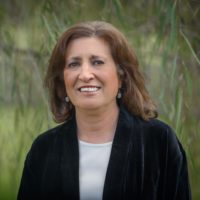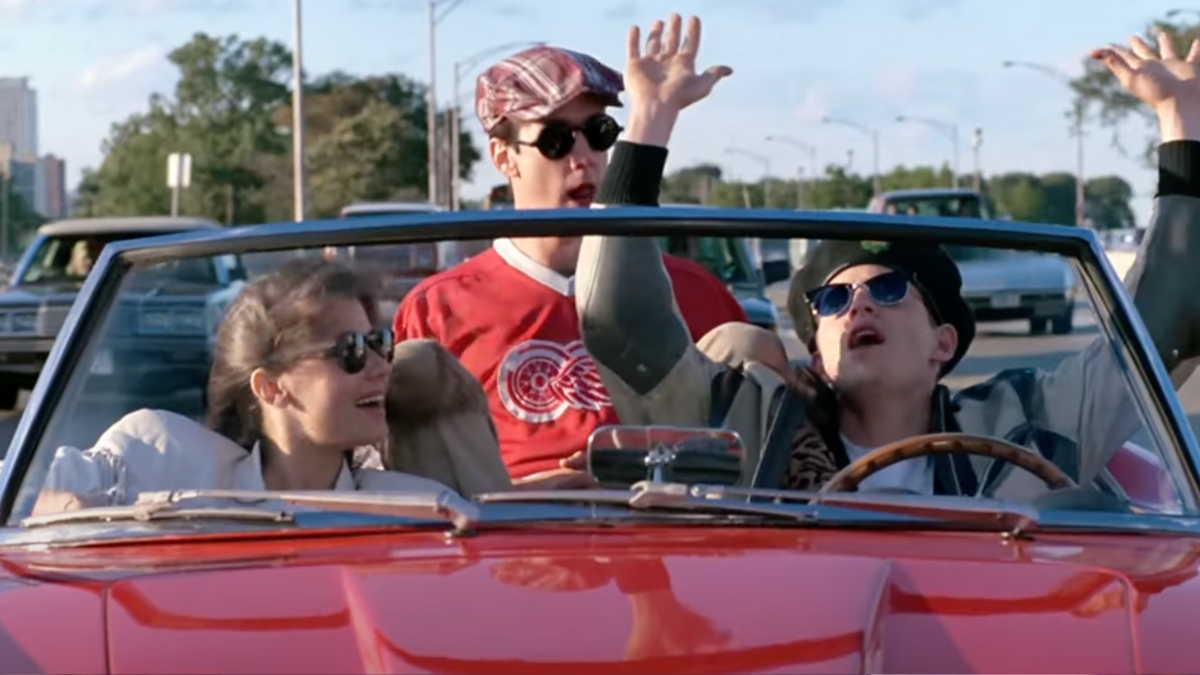
Imagine you cannot raise your own child without special permission from the state. In this matrix, getting permission means getting a license. And getting a license means the state performs psychological evaluations and background checks and passes judgment on your fitness to be a parent. That’s that. No license, no kid—you are forcibly separated from your baby.
Now, who do you think would come up with a scheme? Marxists, you say? Of course, and for nearly two centuries. Gender theorists? Oh, yes, and for decades on end. Population control fanatics? No question. How about meddlesome, brain-dead bureaucrats? Check.
But what if I told you this idea came out recently, all dressed up as a “libertarian” essay? Most people think of libertarians as above the fray, all united in their disdain for big government. Which begs some questions: Why would a self-described libertarian propose something so statist, so totalitarian, so authoritarian? What’s going on with this? Is this ignorance or is it fraud?
Either way, we ought to inspect the article in question. Personally, I’d rather not consider it. The idea of forcing mothers and fathers to get state approval to raise their own children is so morally repulsive—especially towards the children it pretends to protect—that it shouldn’t even be up for debate in a civil society. It feels so much more comfortable just to laugh it off as a fringy blog post, grist for The Onion’s parody mill.
But, alas, we don’t live in comfortable times. So I bid you trudge along with me to examine where we are, where we’ve been, and where we may be headed with this.
A Glance at the Modest Proposal
The essay in question is entitled, directly enough: “Licensing Parents,” authored by one Andrew Cohen, a philosophy professor. It was posted on a website that claims to be searching for common ground between free markets and far-Left statism, er, “social justice.” The blog goes by the name “Bleeding Heart Libertarians.” (For those who aren’t former Episcopalians or negotiators with communists, you’ll need to understand that a “search for common ground” is generally a time tested camel’s-nose-in-the-tent ploy. The more gracious the host, the more quickly the camel takes over the tent…)
The essay begins with the devious words, “As a libertarian . . . .” And then, this: “The state should require parents to be licensed. That is, there is no moral right to raise a child, and we would do well to think of it as a privilege that the state grants and can refrain from granting to certain individuals.”
Wow. So, when you give birth, mom, when you and dad look on this new human being for the first time, and your heart is bursting with—well, hold on, don’t get your hopes up too high, because the corruptible state (show me one that isn’t) is first in line to take charge of your relationship with your child and your child’s relationship with you.
After all, according to Cohen, parenting is merely another “service,” i.e., caregiving. And he believes we ought to license it as we do any other service, like practicing medicine or law or pharmacy. Actually, he doesn’t think we should license medicine, law, or pharmacy. You’re an adult, see, and you can make your own choices there. But because children can’t make their own choices and you might do the child harm, you must be licensed. Cohen provides some anecdotes about child abuse, and says the state should always step in before any such thing can ever even happen. Hence, this scheme to entrust all-knowing, always benevolent, deeply caring state bureaucrats to dictate the lifelong relationships of all vulnerable beings.
But, wait, there’s more! Lest it occur to you that this proposal would require a license for pregnancy, never fear. Cohen has thought this through and he’s got you covered. Sort of: “I should be clear: I am not proposing a licensing requirement for pregnancy. I am not sure I would oppose such, but a parental licensing program is not a licensing program for pregnancy.” However : “Once pregnant, you violate no law until the child is born—and only then if you decide to raise it without getting a license. And perhaps you are allowed to take the licensing test multiple times if you fail at first. Perhaps you do so after taking parenting classes.”
Feel better?
So, now, you’re bright-eyed and pregnant and ready to take your test to be allowed to be a mom. What’s in store? Well, Cohen figures the benevolent state will give you two tests: One financial and the other psychological. So that’s the basic rationale. The poor don’t get kids. We’re not sure how poor. That’s up to the state. But presumably, kids would be removed from those of lesser means and either raised in much more satisfactory state institutions or doled out to richer or better-connected people. Ah, yes, more just. And the all-knowing, always benevolent bureaucrats will tell you whether you are good parenting stock, and if not, will convict you of crimes before they are committed. I think we used to call that sort of thing fascism. Now it’s “libertarian,” apparently a much more benign form of fascism?
I could extract more quotes from the proposal, but it’s all blah-blah-blah smokescreen excuses for statism, which are not worth repeating further. You can read the whole thing at the link above. The arguments are not new, and are modeled on a treatise from 1980, also called “Licensing Parents,” an equally disastrous article authored by a certain Hugh LaFollette in Philosophy and Public Affairs.
Privacy, Relationships, and State Control
Now, we’ve all heard of some pretty bad cases of child abuse out there and we welcome Cohen in being against them, too. But are individual cases or statistics of child abuse relevant here? No, they are entirely irrelevant to the question of giving the state carte blanche to separate all children from their biological parents. That is what is being proposed with parent licensing and that is what all decent people will reject.
When we give the state the power to decide—at the outset and for everybody—whether family autonomy and privacy may exist, this means, de facto, that the attributes of autonomy and privacy have already ceased. This is not a debate about whether child abuse is bad. This is about whether the presumption of child abuse by state bureaucrats justifies the state takeover of the family. You know, when you say it that way, it just doesn’t seem quite so “libertarian.”
And licensing parents would go far beyond the regulation of parenting as an activity of parents. It revokes the moral right (universally held, with the exception of Plato and occasional utopian “thinkers”) of parents and their children to know one another, the right of the child to his or her parents, and the right of the parents to their child. Children are left with no moral right to know who their parents are in this matrix. Instead, they are basically state chattel. And, oddly, in all of this talk of revoking the right of biological parents and children to know one another is the perspective of the child, the notion of “responsibility” of biological parents is fatally undermined. If parents have no moral right to raise their biological children, as Cohen professes, then parents can have certainly have no moral responsibility nor any concomitant obligation.
Interestingly, this article concedes that children are “vulnerable beings that we hope will become fully formed persons.” Okay, say that’s the goal. But on the road to becoming a “fully formed person” the first question said child usually asks is this: “Where did I come from?” Children arrive at that question naturally. Autonomously. It happens as they become self-aware and try to make sense of their relationship with the world. It’s a universal and existential question.
Children have a very deep need to feel grounded in space and time through connection with their birth parents. This is the reality, no matter how hard we may try to deny it. Children can compensate for it and get past it, especially with wonderful adoptive parents. But such separation inevitably produces a sense of loss in kids. To deny its importance is to deny the dignity of the child. We ought to understand and respect these needs.
My point is that children have a basic right—a natural and a moral right—to know where they came from. Any proposal to license parents is based in part on the premise that children have no such right. And no one has the right to take that away from them.
Protection or Pimping for the State?
Ultimately, state licensing of parents puts the state in a position to dictate all family relationships, and in the end, all human relationships. So much for freedom of association.
In shifting rights away from individuals and giving those rights entirely to the state, licensing parents serves to eliminate the institution of family as a buffer zone or mediating institution between the individual and state power. That institution—the family— can and has served well as real protection for the individual from encroachment of state power.
Families—the “little platoons,” as Edmund Burke called them— decentralize power away from the state. That’s a good thing for anyone who values individual liberty. Undermining or eliminating the family and its moral underpinnings atomizes individuals, leaving them to face the state alone, making us all strangers to one another in the eyes of the State. What becomes most vulnerable, then, are all our personal relationships.
The hubris of this sort of social engineering—you’ll note it’s devoid of love—is mind-blowing to anyone who ponders it and should be anathema to real libertarians. It puts Cohen in the company of totalitarians who seek to destroy the family to “protect” the presumably downtrodden. Take, for example, gender theorist Martha Fineman, who promotes the abolition of state-recognized marriage so the state can better monitor individuals. Her rationale is that patriarchal men can harm women if marriage is protected by a wall of privacy. Here’s a choice quote on that from her book, “The Autonomy Myth”: “Once institutional protection was removed, behavior would be judged by standards established [by the state] to regulate interactions among all members of society.” (emphasis added)
Yes, the state can give “protection” of this sort. So can any pimp or mobster, for that matter. But centralizing power is an evil and nasty thing to play around with. Beware such ideas bearing the fig leaf of “libertarianism.” Unfortunately, libertarianism is now apparently amorphous enough and so wracked with factions it can be used as convenient cover for authoritarian ideas.
The Road to Hell
So how might anyone get to even considering parenting licenses? Well, it seems we now live in circumstances that allow for incubating such totalitarian ideas. Control freaks will always be among us. But the following conditions allow them much freer rein: the alienation and chaos that comes from the breakdown of family and community; the complacency that comes from easy dependency on state largesse; the ignorance that comes from conformist thinking; and the self-absorption that comes from a culture of nonstop sexual indulgence.
And the canard of parent licensing was bound to come out of the shadows in the recent wave of statist social engineering attacking the institution of the family . A lot has gone into this brew. “Marriage equality” might look harmless on paper to a lot of folks, but genderless marriage is really just the intellectual and political precursor to efforts to abolish all civil marriage and to end family privacy, as Fineman prescribes. (See more about this major bait and switch operation.) The transgender movement is building on this by working to remove all gender distinctions in law and giving the state greater berth to legally and universally redefine what it means to be human. Combine it all with the uses and abuses of artificial reproductive technologies, and we can discern a path that inevitably leads to state ownership of children.
Alas, some have cultivated a thin veneer of respectability for the idea of “children as state chattel.” The prime example is Hillary Clinton’s 1996 treatise, “It Takes a Village to Raise a Child,” which served as a soft, comfortable introduction to the idea of licensing parents. It was followed in January 1998 by an op-ed entitled “The Child Swap Society,” by American Federation of Teachers President Sandra Feldman (d. 2005.)
“The Child Swap Society” ran as an AFT advertisement in several major dailies. Clearly, it was a trial balloon for the idea of parent licensing. In it Feldman recalled a science-fiction story and seriously suggested children might be better off in a lottery in which the state separates children from their parents and assigns them to their caregivers. Most recently, MSNBC anchor Melissa Harris-Perry came right out and said we need a more “collective” rather than private idea of kids, and that they “belong” to their communities, not their families.
With all that as context, we shouldn’t be surprised that the idea of licensing parents is rearing its head in libertarian garb.
And What Must We Do?
So, here we are. The battered family, under fierce attack for the last several decades, must brace for yet another assault. Statists posed as “libertarians” are now leading the charge, perhaps posed to help sell the Kool-Aid in a neighborhood near you.
Cohen ends his ominous and peculiar post by asking if licensing parents is politically feasible, and answers: “I think so.” Indeed, any utopian scheme seems “feasible” if only you’ve got enough brown shirts to persuade the reluctant few of its wisdom.
Well, let us reluctant few stand firm. We need to reject this whole bogus monstrosity and throw it squarely back onto the ash heap of history, from whence it came and where it belongs. Forever.









